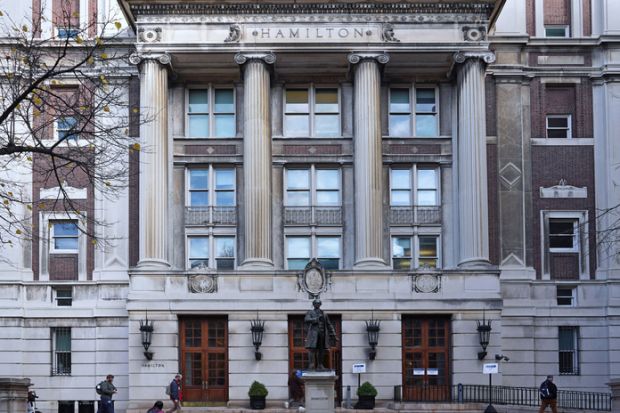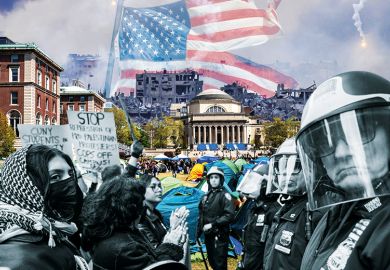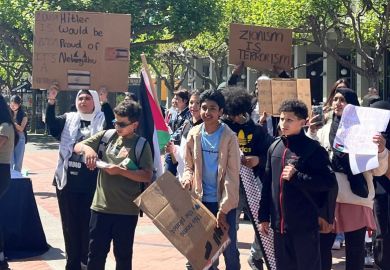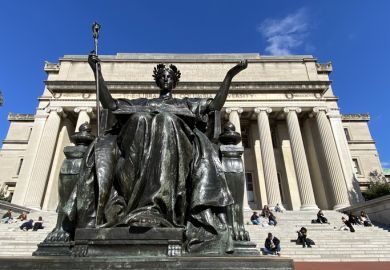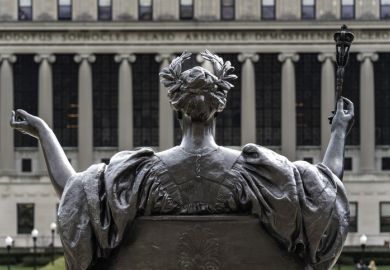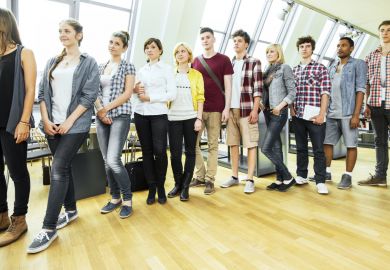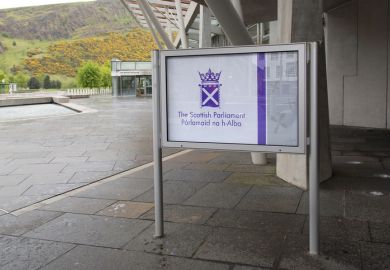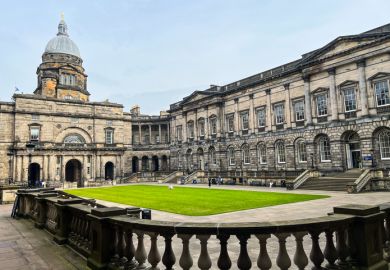Pro-Palestinian protests across US colleges and universities have intensified with dozens of new arrests and Columbia University locking down its New York City campus after students threatened with suspension for an outdoor encampment responded by occupying a historic building.
Dozens of protesters at Columbia entered Hamilton Hall overnight and barricaded themselves inside after university leaders ended negotiations with a vow not to meet their demands for divestment from Israel and instead began suspension proceedings against students inside the encampment on the nearby South Lawn.
The protesters hung a sign suggesting the eight-storey building of classrooms, named after the first US treasury secretary, Alexander Hamilton, had become Hind Hall, in recognition of Hind Rajab, a six-year-old girl from Gaza killed along with her family in an Israeli military attack.
A student group calling itself Columbia University Apartheid Divest took credit for the occupation, arguing that it had behaved more peacefully than the university administration, which called in police two weeks ago to arrest non-violent protesters at their outdoor demonstration.
“Taking back our own campus is the only and last response to an institution that obeys neither its own ‘rules’ nor ethical mandates, which is why we began the Gaza solidarity encampment,” the group wrote in a social media posting.
The occupation is one among dozens of sit-in protests at US campuses, sparked by a congressional hearing in Washington where the Republican-led House of Representatives called in Columbia’s president, Baroness Shafik, as part of their months-long campaign to force US colleges and universities to punish expressions of pro-Palestinian sentiment.
The Columbia president authorised the police arrests as part of her bid to comply with the congressional demands. But Columbia students responded with a new sit-in protest on their campus’s main lawn, and students at institutions across the country followed suit.
The result has been a nationwide tally of nearly 1,000 arrests in police-led confrontations at institutions that include Columbia, Yale University, New York University, Princeton University, the University of Texas at Austin, Emerson College, Northeastern University, the University of Southern California, Ohio State University, Emory University, Indiana University, Arizona State University, the University of Minnesota and many more.
Some have moved classes into online formats and cancelled commencement ceremonies. Many have moved to lock down their campuses, saying that protests that apparently originated with their students have since been joined by significant numbers of outside activists, raising the level of threat to their campus communities.
Student protesters in many locations have argued that their demonstrations have been peaceful and largely non-disruptive to their surroundings until institutional leaders ordered law enforcement involvement.
At Columbia, the president pulled back from her original decision to call in police and assigned staff to spend most of the past week in negotiations with protest leaders.
As part of that process, the Columbia University administration agreed it would publish a list of direct investment holdings, frequently update that list and “develop an expedited timeline for review of new proposals from the students” for revising its investment policies.
But the administration said it would not immediately divest any Israel-related holdings and said it could not keep tolerating the noise and distraction of the encampment – and would begin suspending students who remained there.
US campuses saw a series of student protests after the conflict in Israel flared with a Palestinian military incursion that led to a far more deadly Israeli response. But the US campus demonstrations escalated to far higher levels after the hearing with the Columbia president convened by Republican lawmakers, who are regarded by experts as motived by a broad desire to show their ability to counter what they regard as a predominantly left-of-centre perspective in US academia.
Register to continue
Why register?
- Registration is free and only takes a moment
- Once registered, you can read 3 articles a month
- Sign up for our newsletter
Subscribe
Or subscribe for unlimited access to:
- Unlimited access to news, views, insights & reviews
- Digital editions
- Digital access to THE’s university and college rankings analysis
Already registered or a current subscriber? Login
